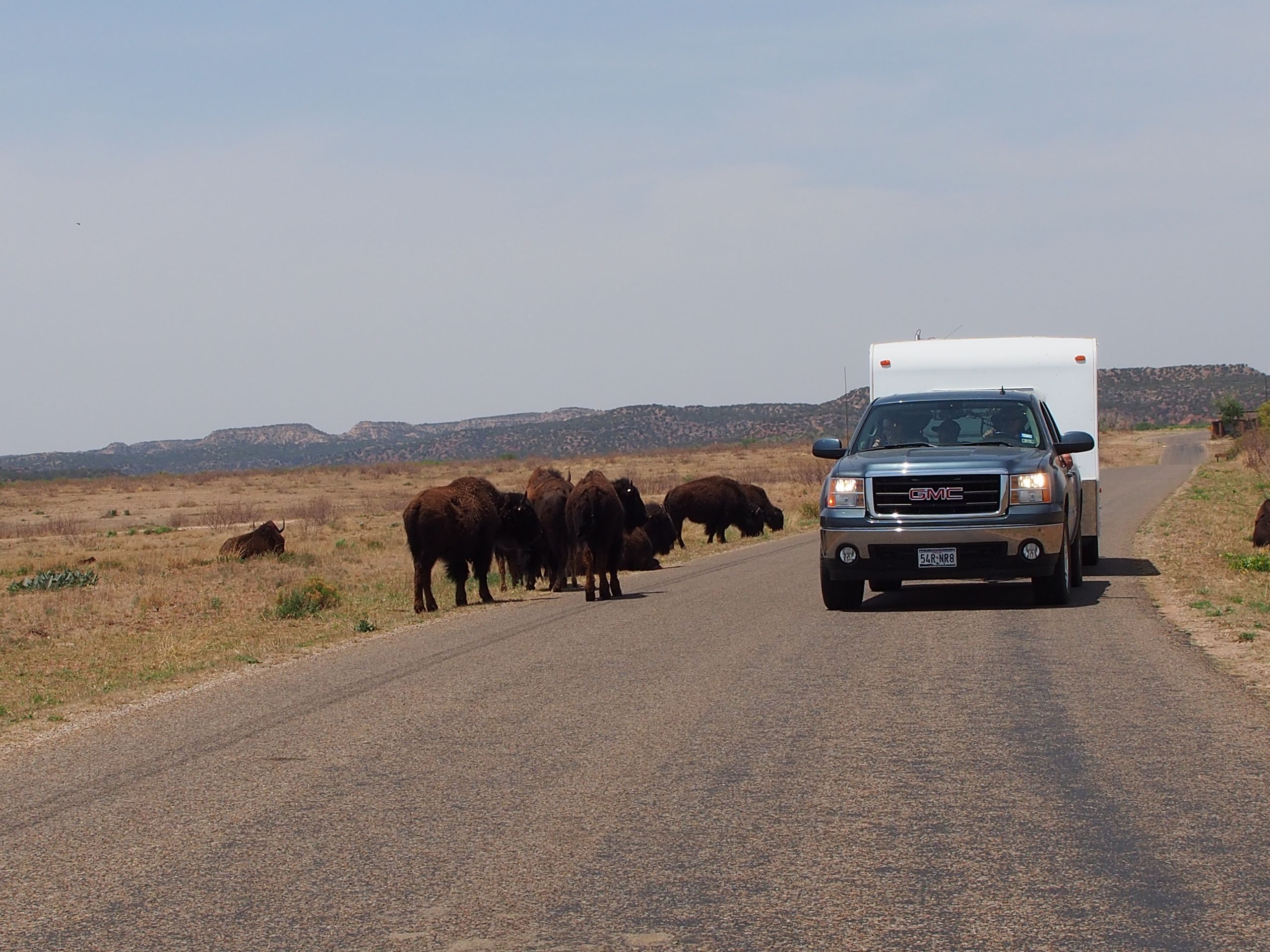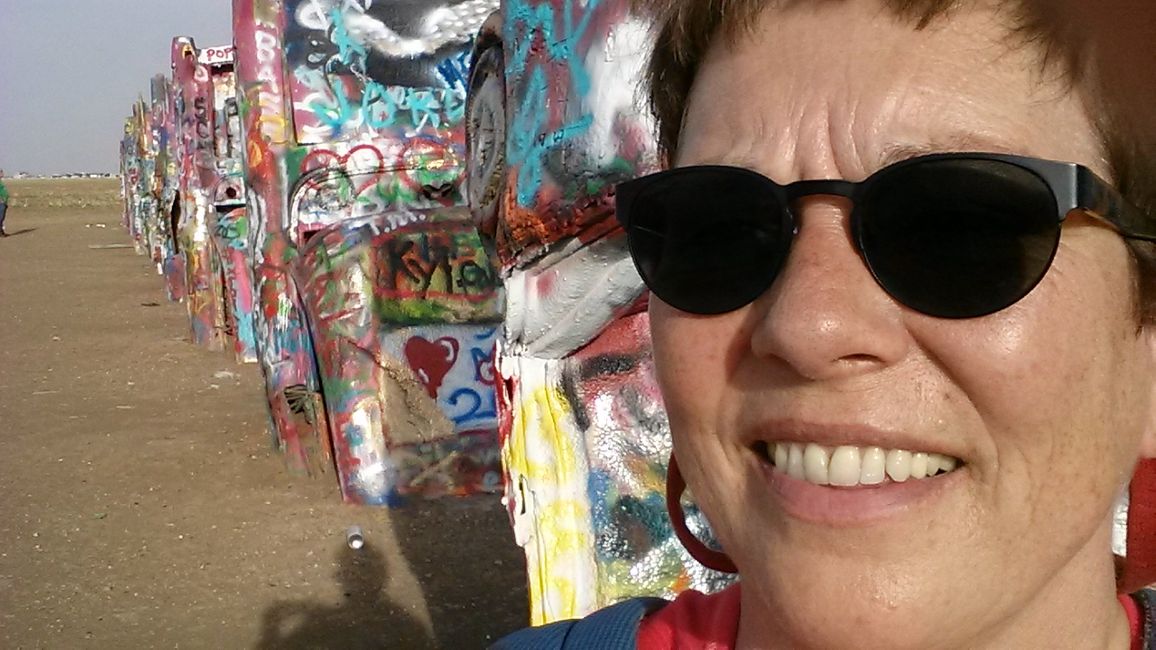
TEXAS - Ein Monat bei Cowboys, Astronauten und Ölbaronen
vakantio.de/texas-ein-monat-bei-den-cowboys
Fort Concho & 500km सीधा उत्तरम्
प्रकाशित: 09.02.2021
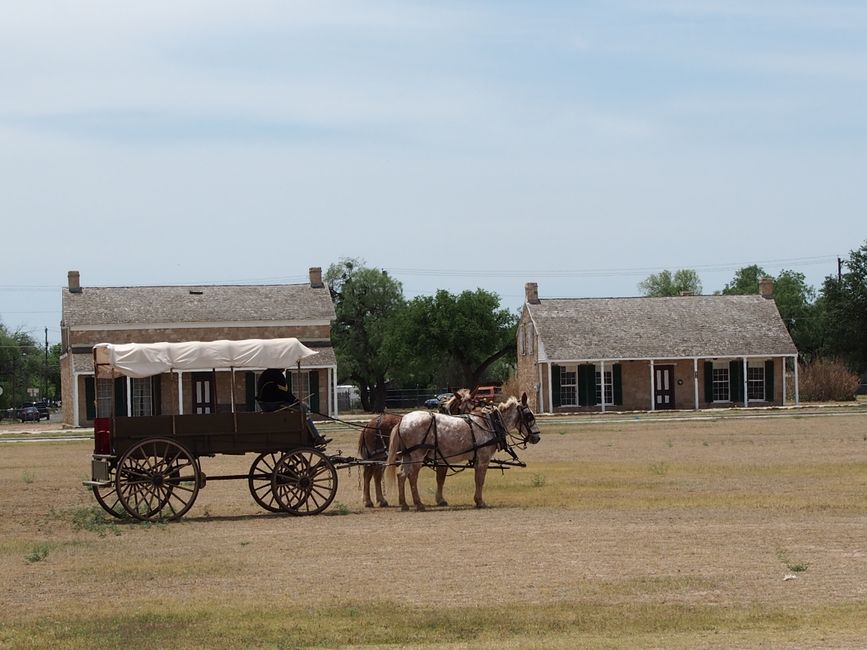
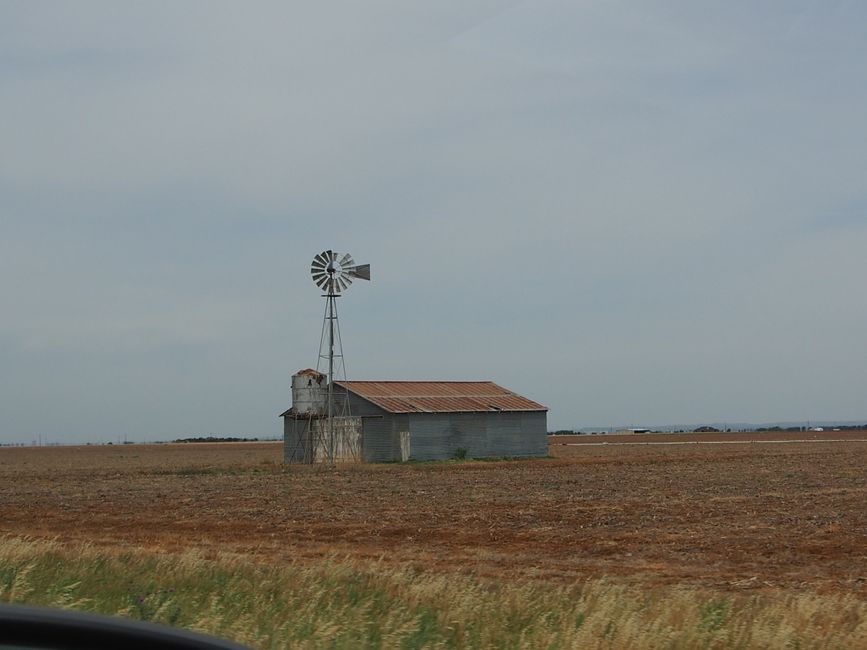
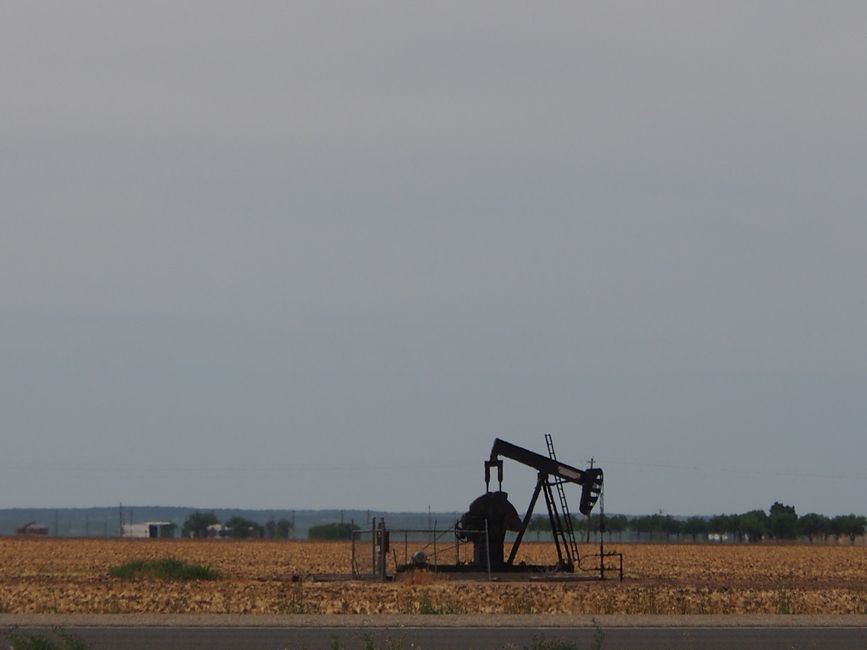
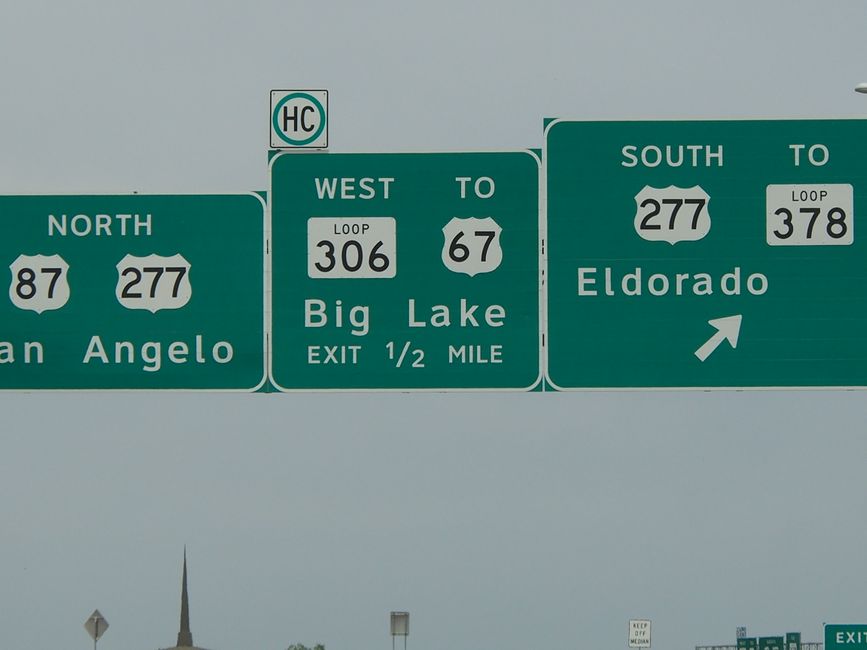
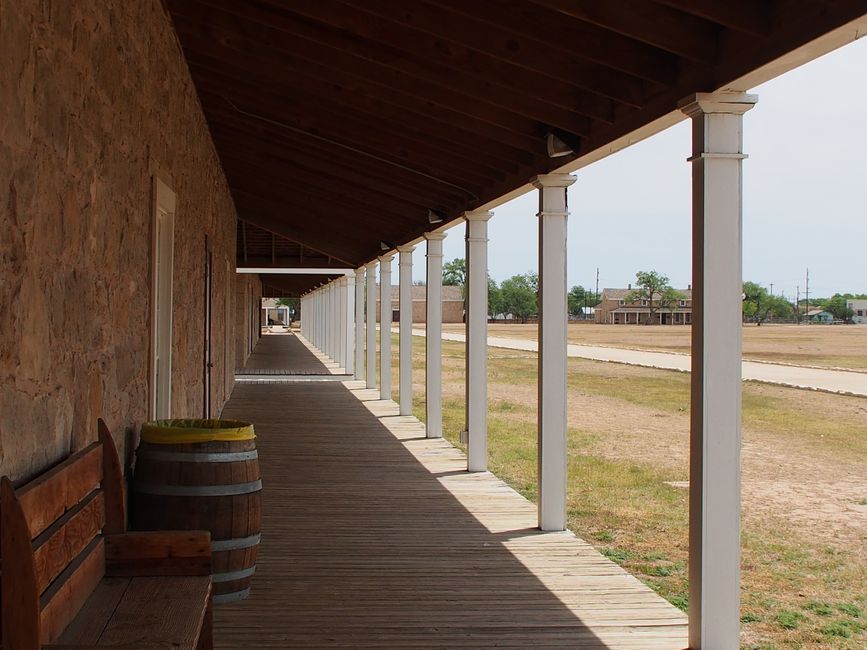
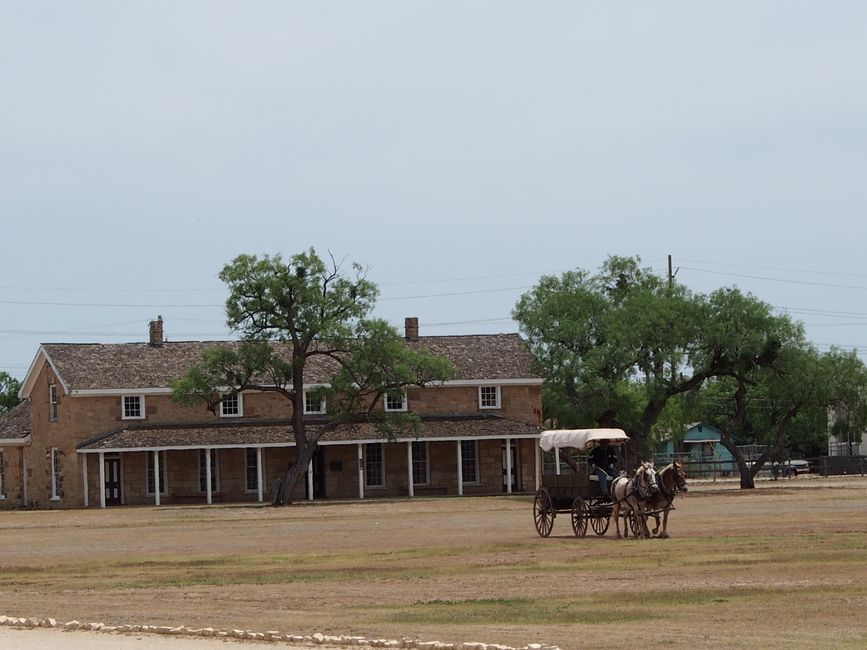
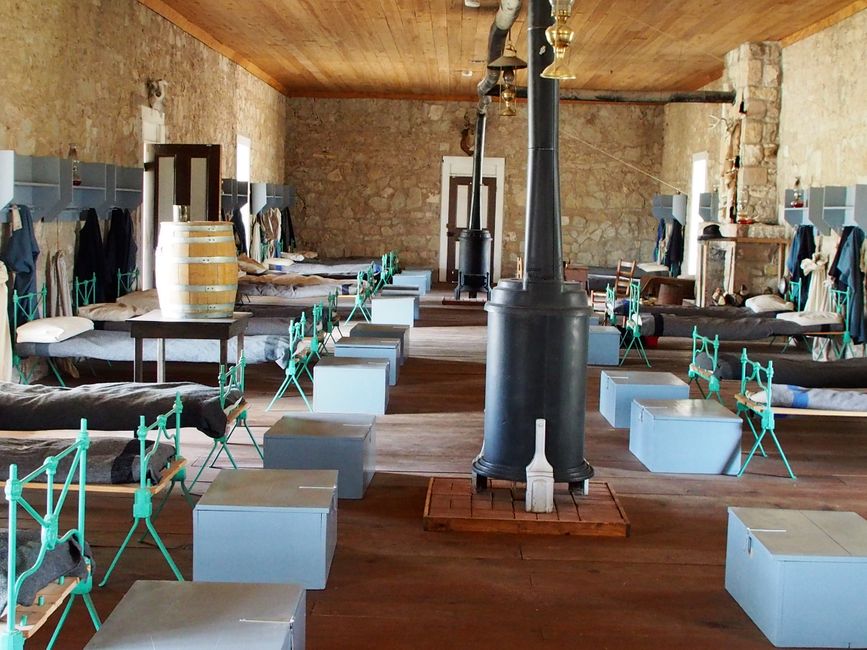
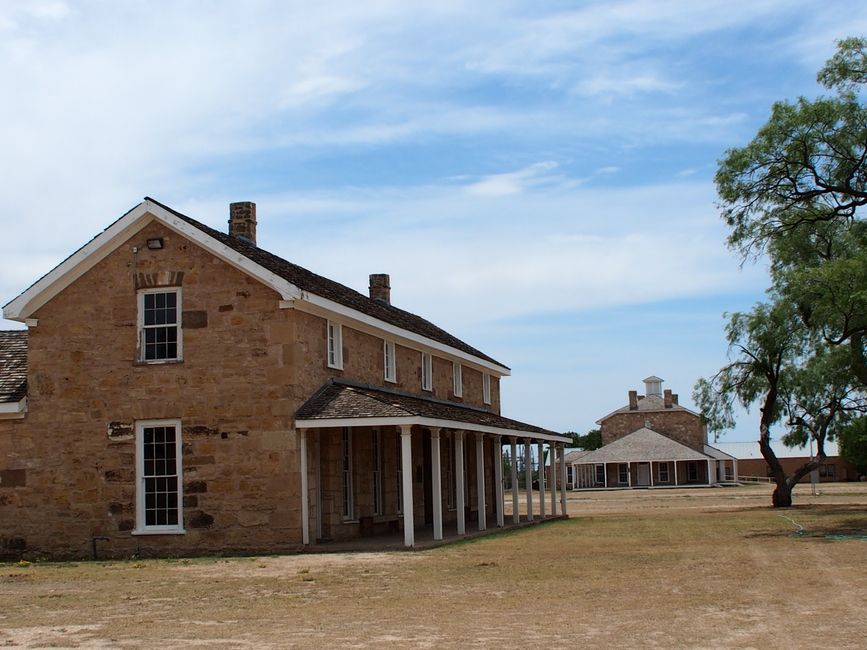
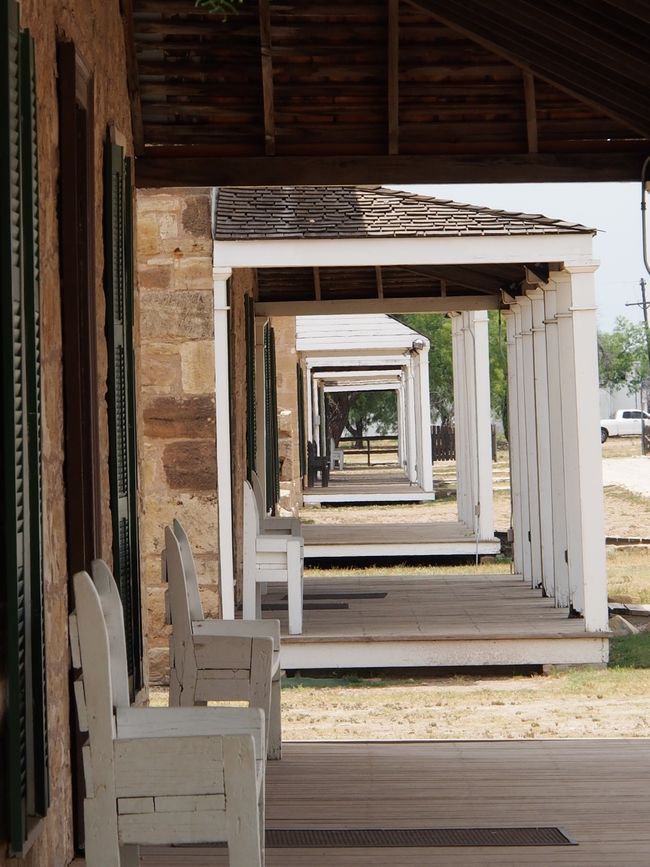
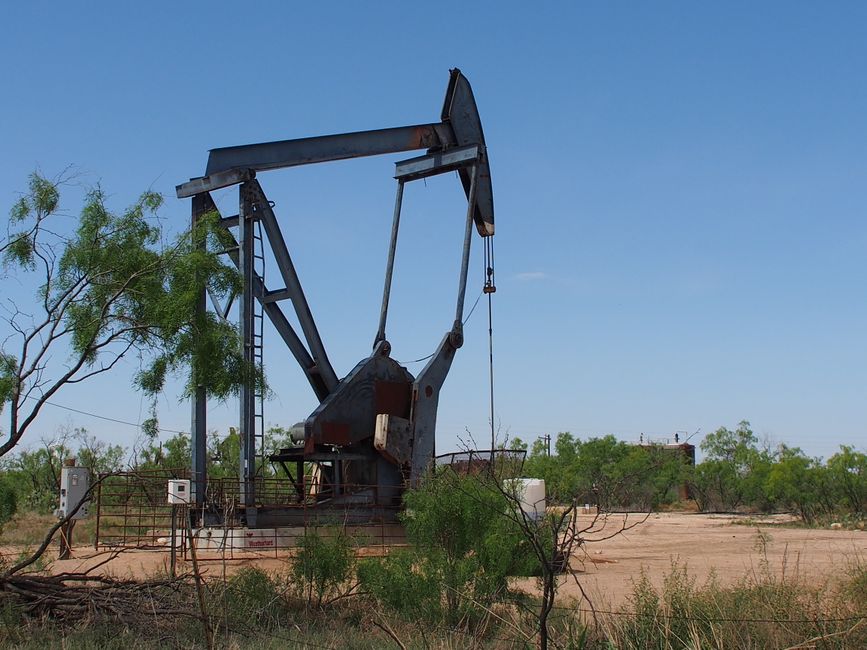
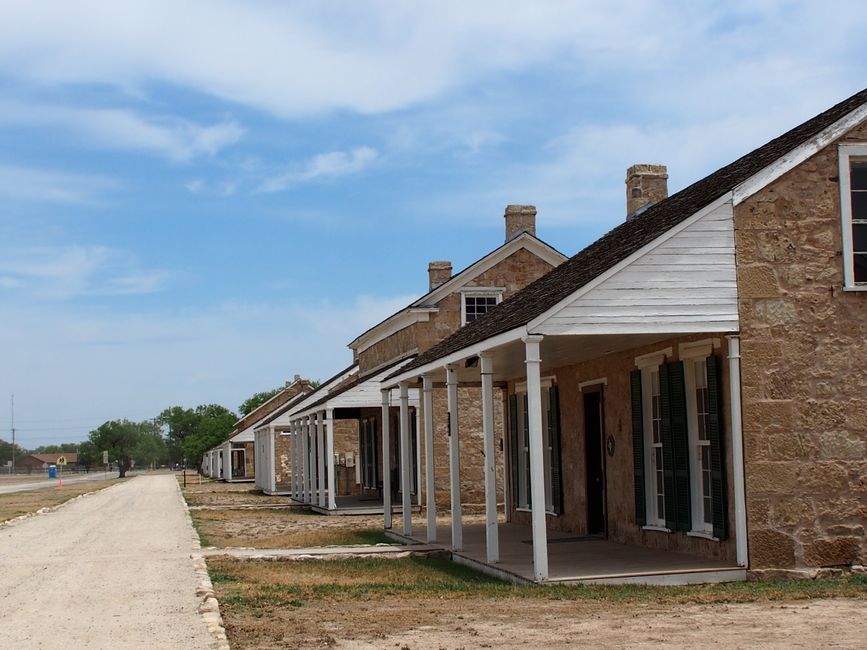
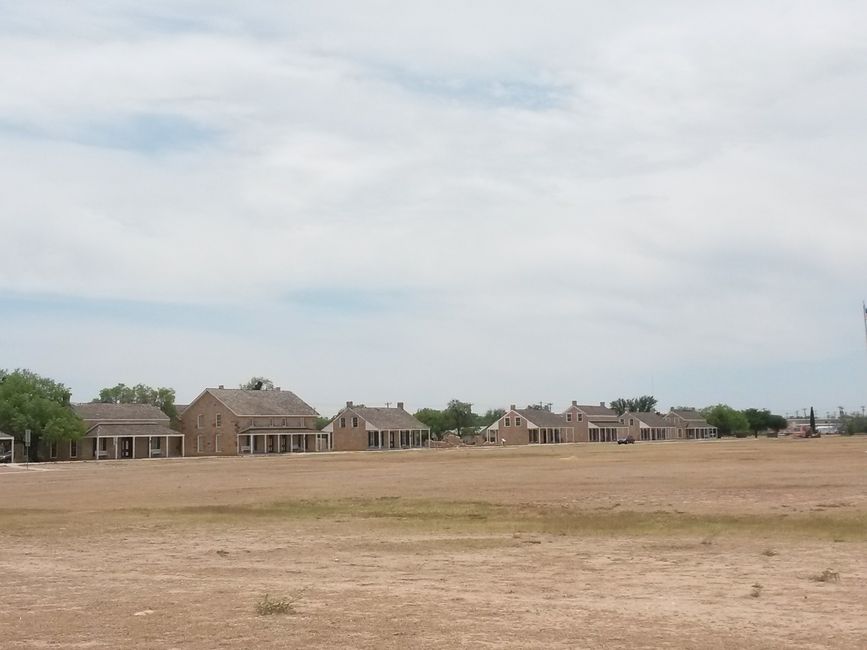
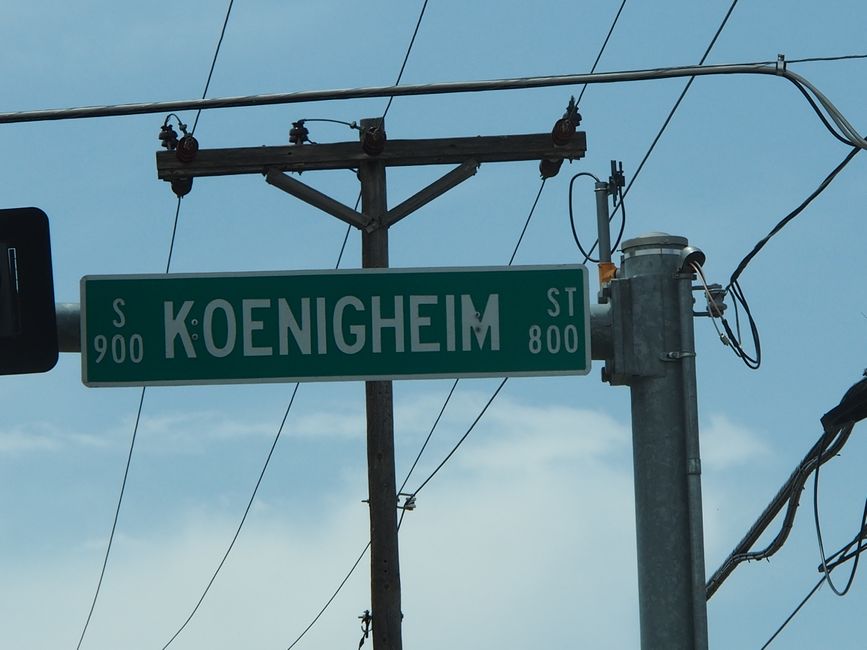
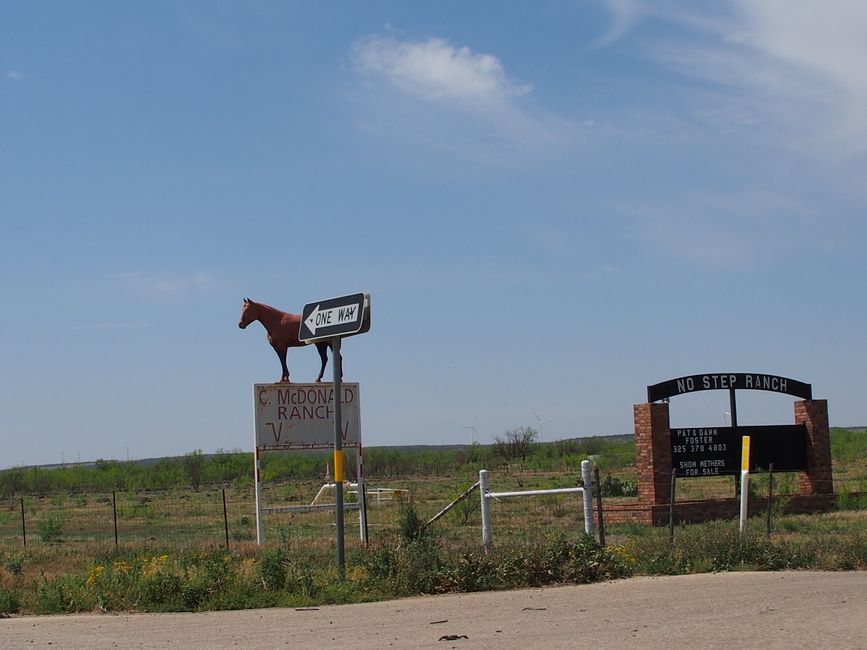
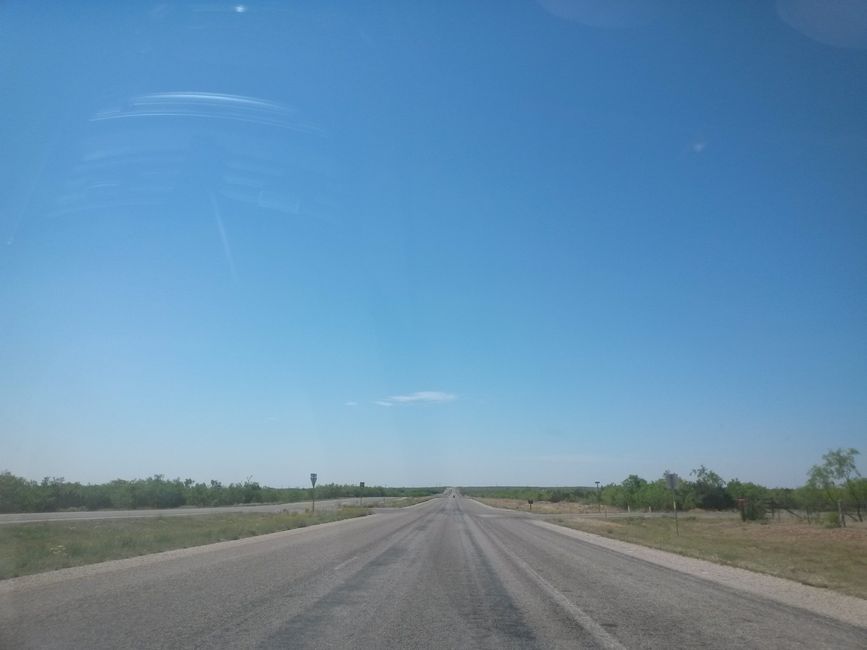
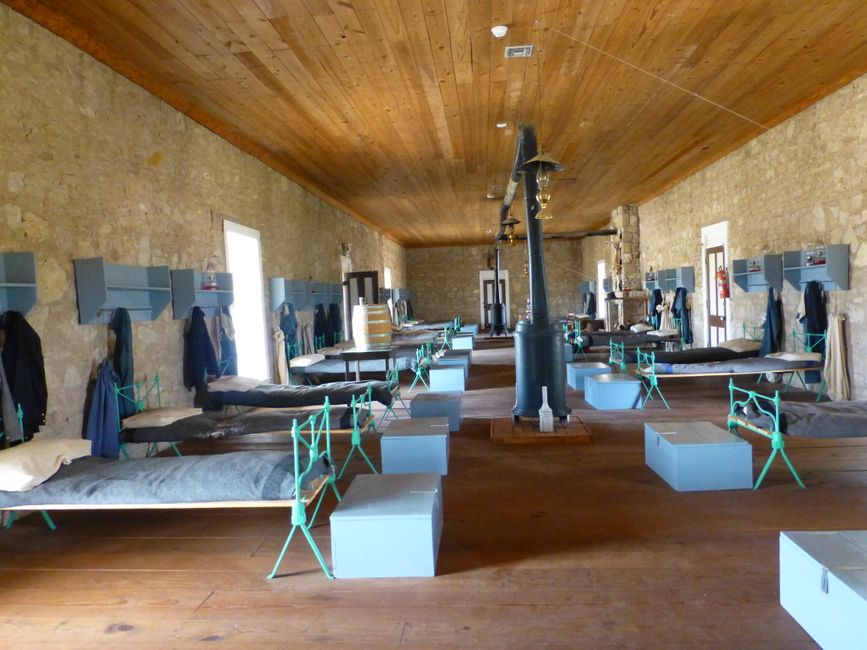
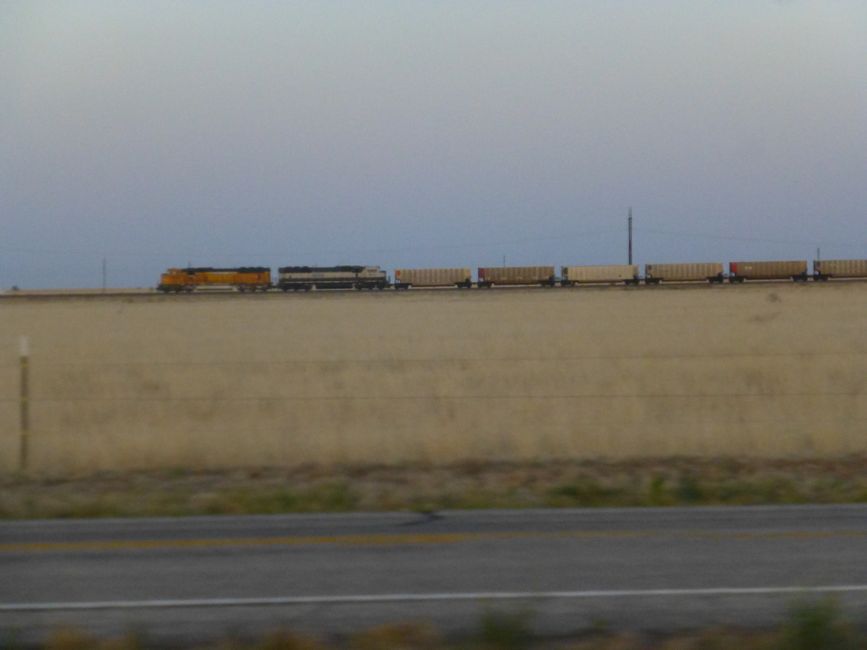
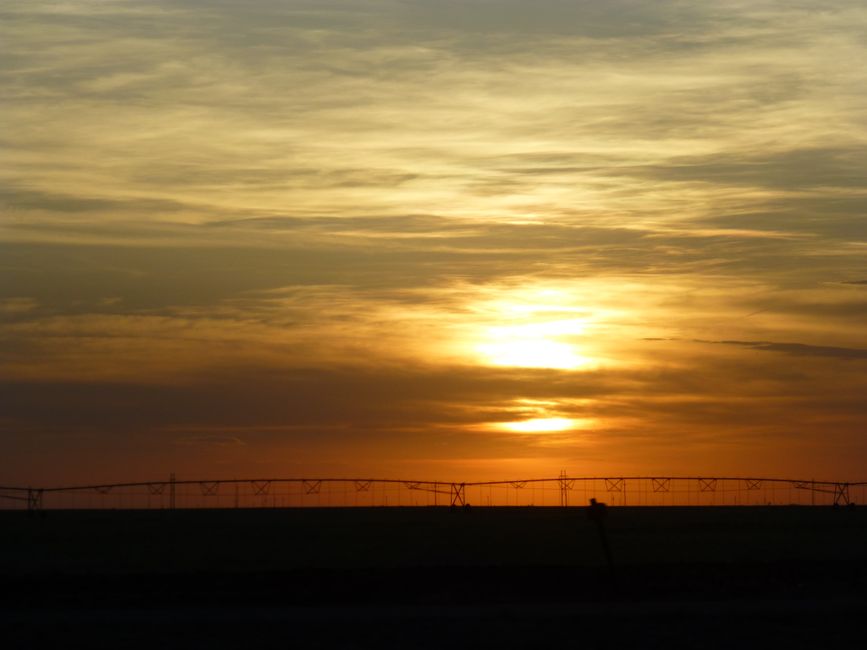
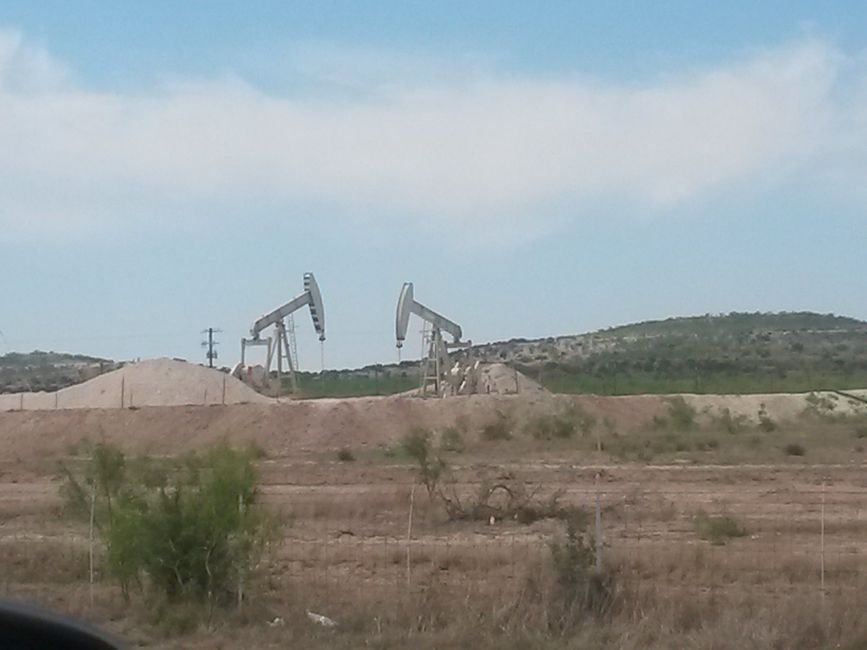
Saturday 17.05.2014
After breakfast with black bread from New Braunfels and cheese and tomatoes from Wal-Mart, we leave Brady and drive for about an hour to San Angelo.
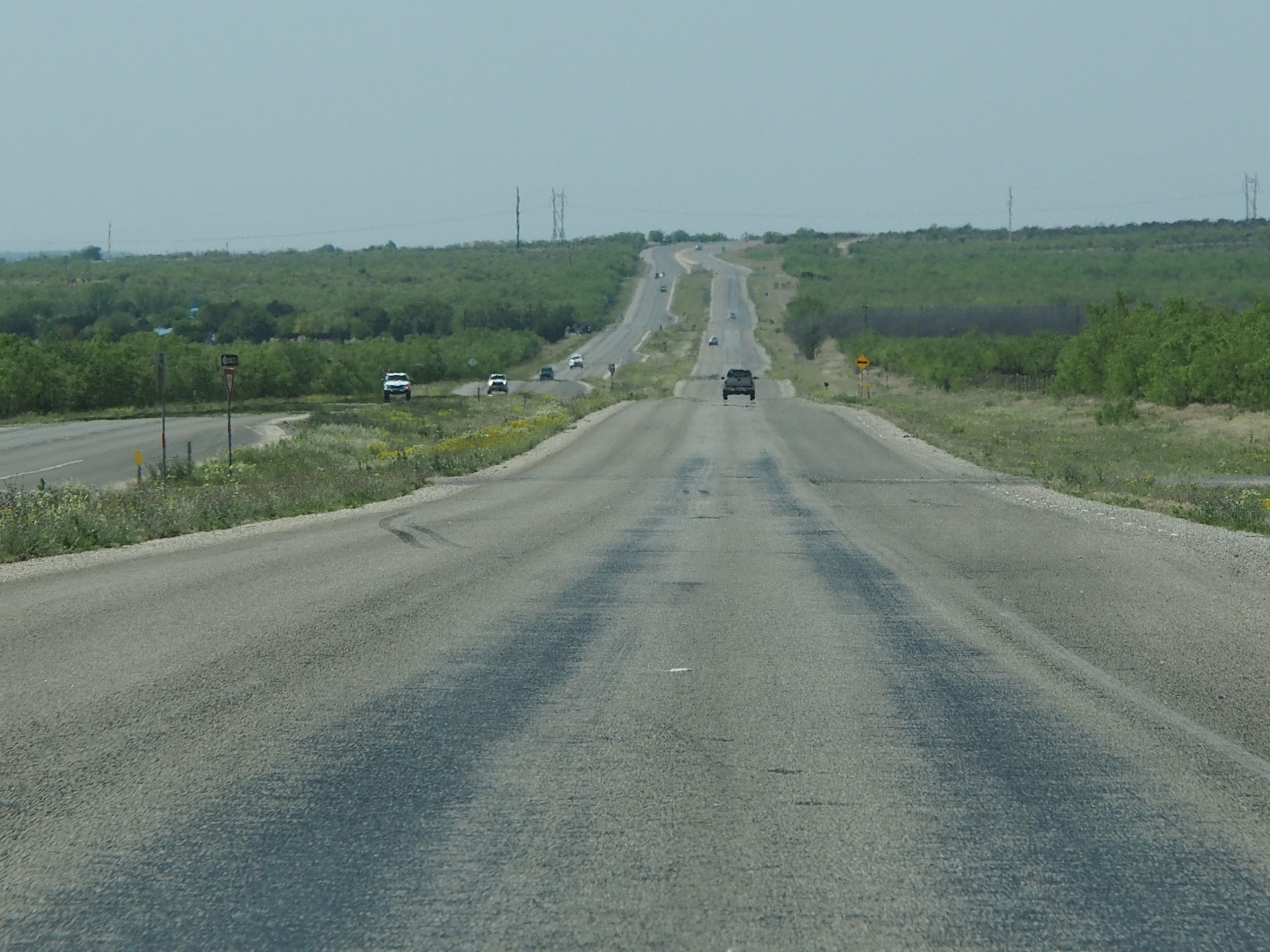
Wide fields, endless vastness accompany us. Neither herds of cattle nor ranches are to be seen, but now we see some oil pumps.
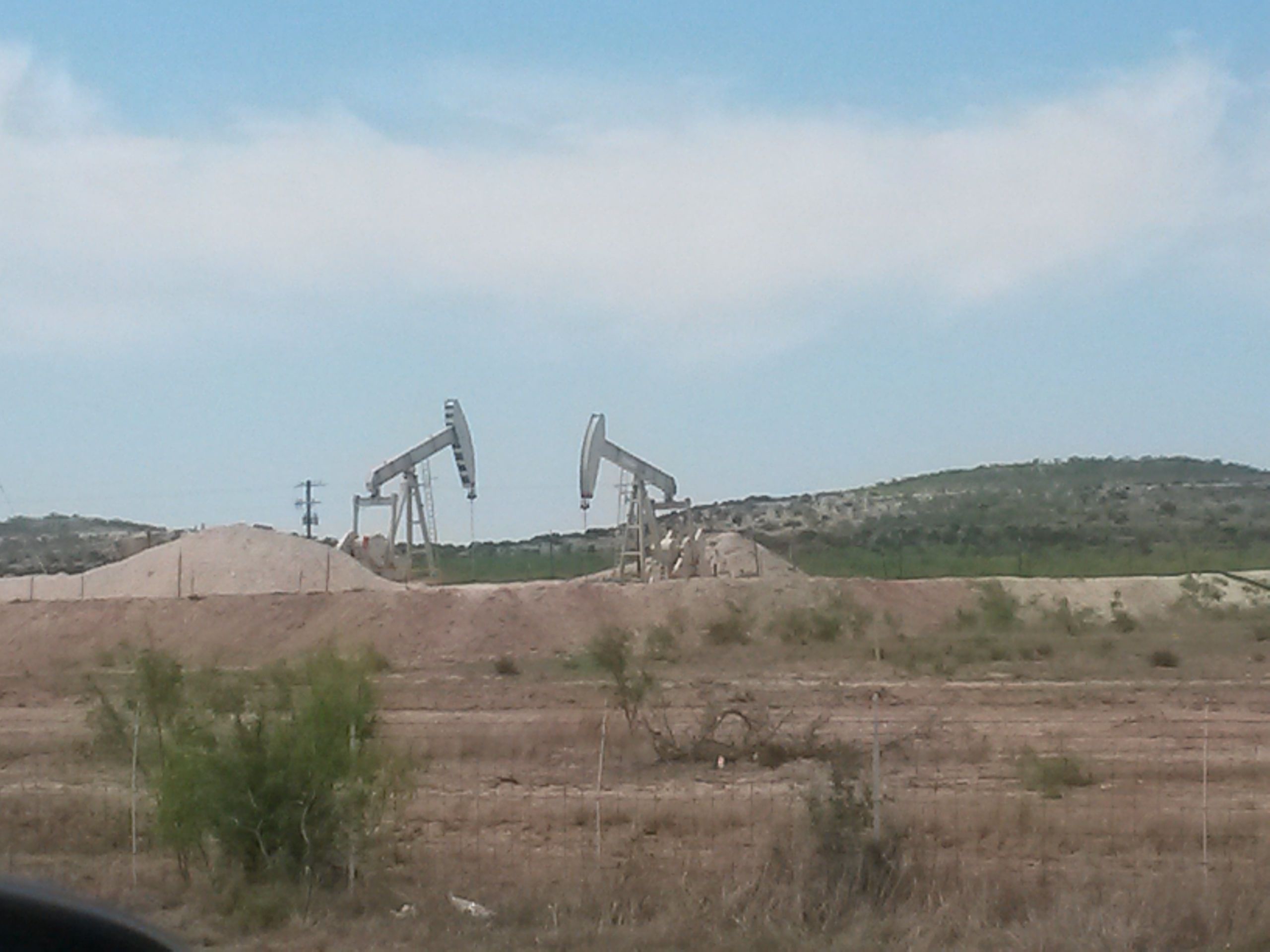
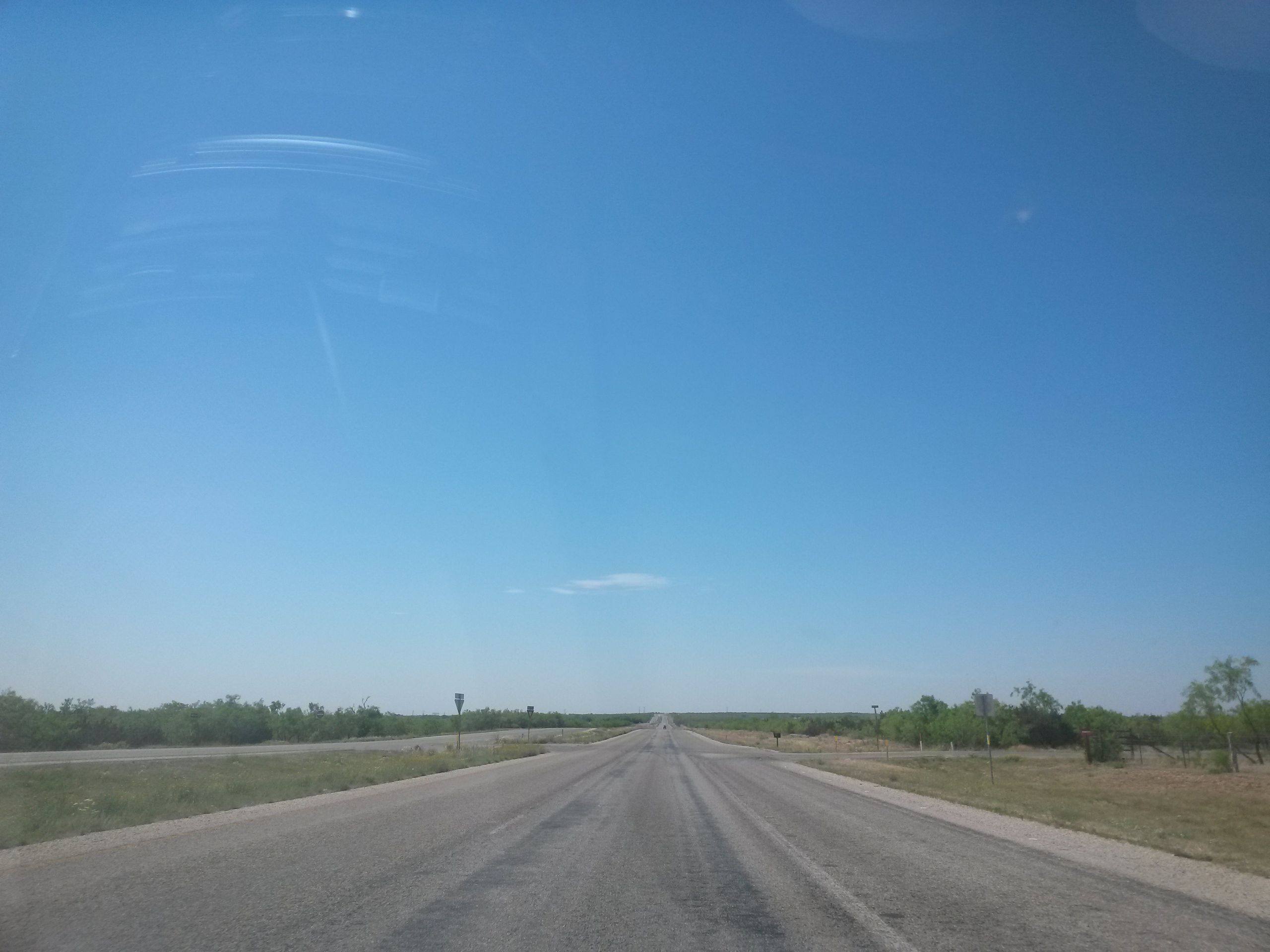
When we arrive in San Angelo, it is already well over 30°C. The city is completely deserted. Where the market should be, there is a high roof under which we park so that the car doesn't have 200 degrees when we get back in.
The Fort Concho looks completely different from what one imagines a fort to be. Instead of palisade fences and watchtowers, there is only a dusty parade ground and several flat buildings around it.

We learn that until the end of the 18th century, forts were secured with palisade fences, but this fort dates from the second half of the 19th century. It is one of the best-preserved forts on the so-called Texas Fort Trail, which is over 1100 miles long. Infantry, cavalry, and “Buffalo Soldiers” (colored soldiers) were stationed here. The main purpose was to secure the settlement against attacks from Comanches and to secure the undisturbed transportation of stagecoaches and the trade route that ran along here.
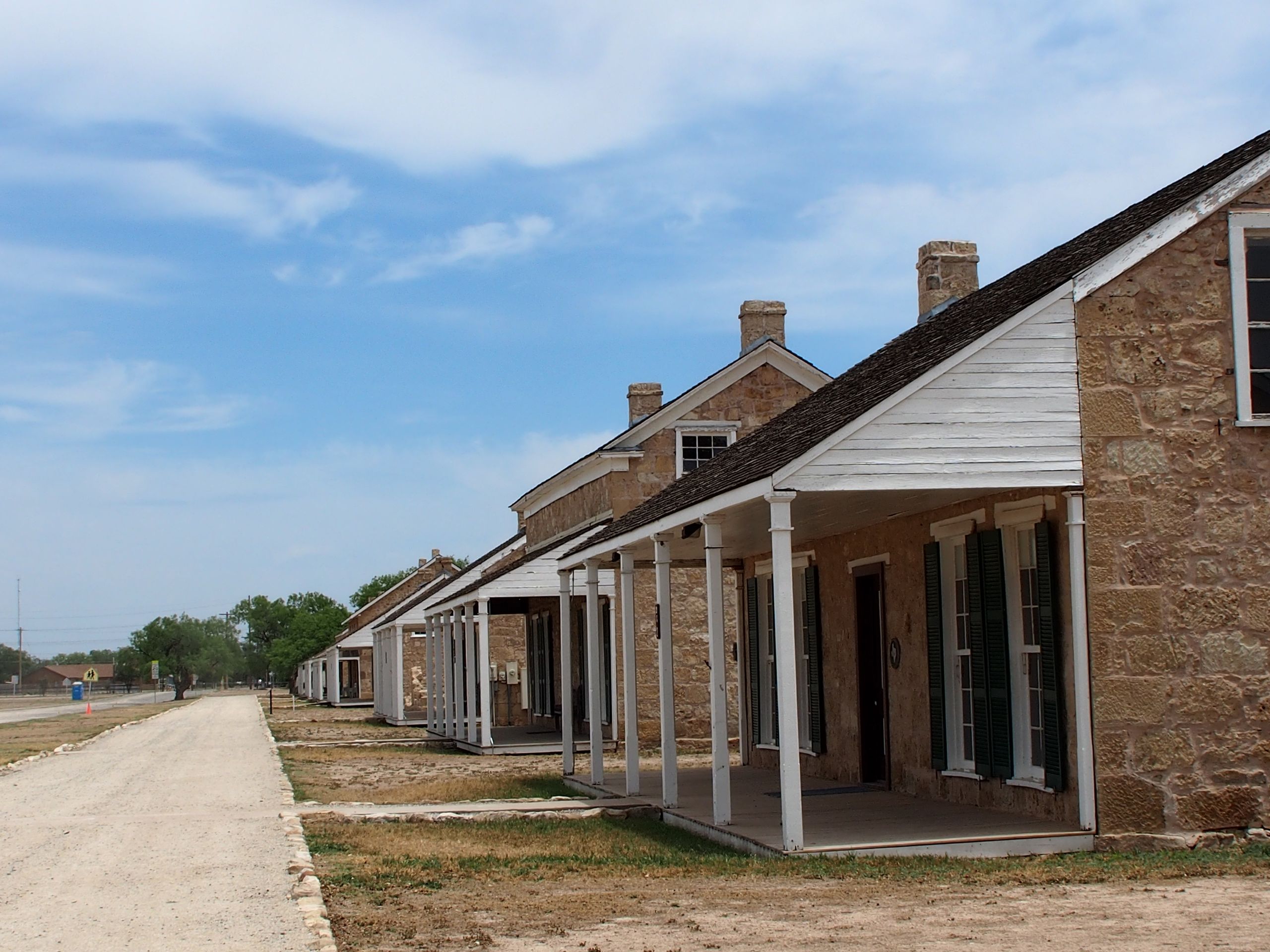
From here, they set out to survey West Texas. Since there were no trees, let alone forests, from which houses could be built, the settlers and soldiers lived in tents for months and initially dealt with the processing of stones to make them usable for house construction. Hard work in the heat...

Some of the houses can still be visited today. Among them is a sleep barracks of the cavalry. A costumed employee explains to us that - when the troops went into battle - they always sent 25% more people than needed, as this roughly represented the ratio of casualties. The straw mattresses could be filled as desired. The higher ranks were in the middle of the barracks, with the best distance to the stoves. Those who lay close to these stoves sweated half to death, while those who lay too far away froze miserably. The walls of the houses retain the temperature for about 3 days, so that basically after a heat period in summer, the people were still stewing here for a few days, while - if it got hot outside after a cool period - they had a few days of pleasant coolness in the house.
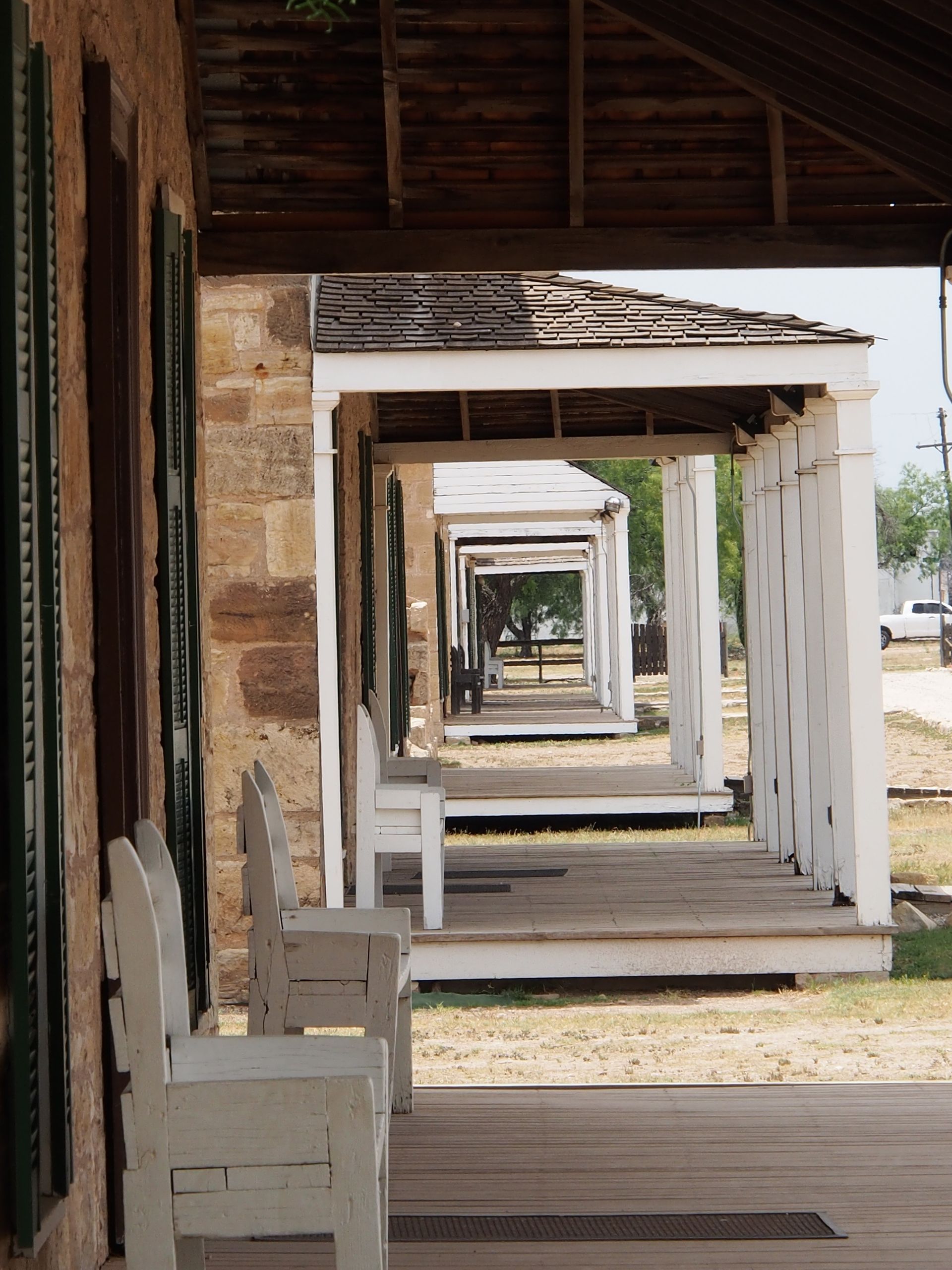
Unfortunately, the hospital burned down in the 1920s and, like some other buildings in this complex, was later reconstructed. The hospital had an observation tower from which, allegedly, one could see who would be at the door in 2 days. The land here is so flat that you could believe it. We are almost the only visitors and quickly visit the well-cooled telephone museum before we return to the car.
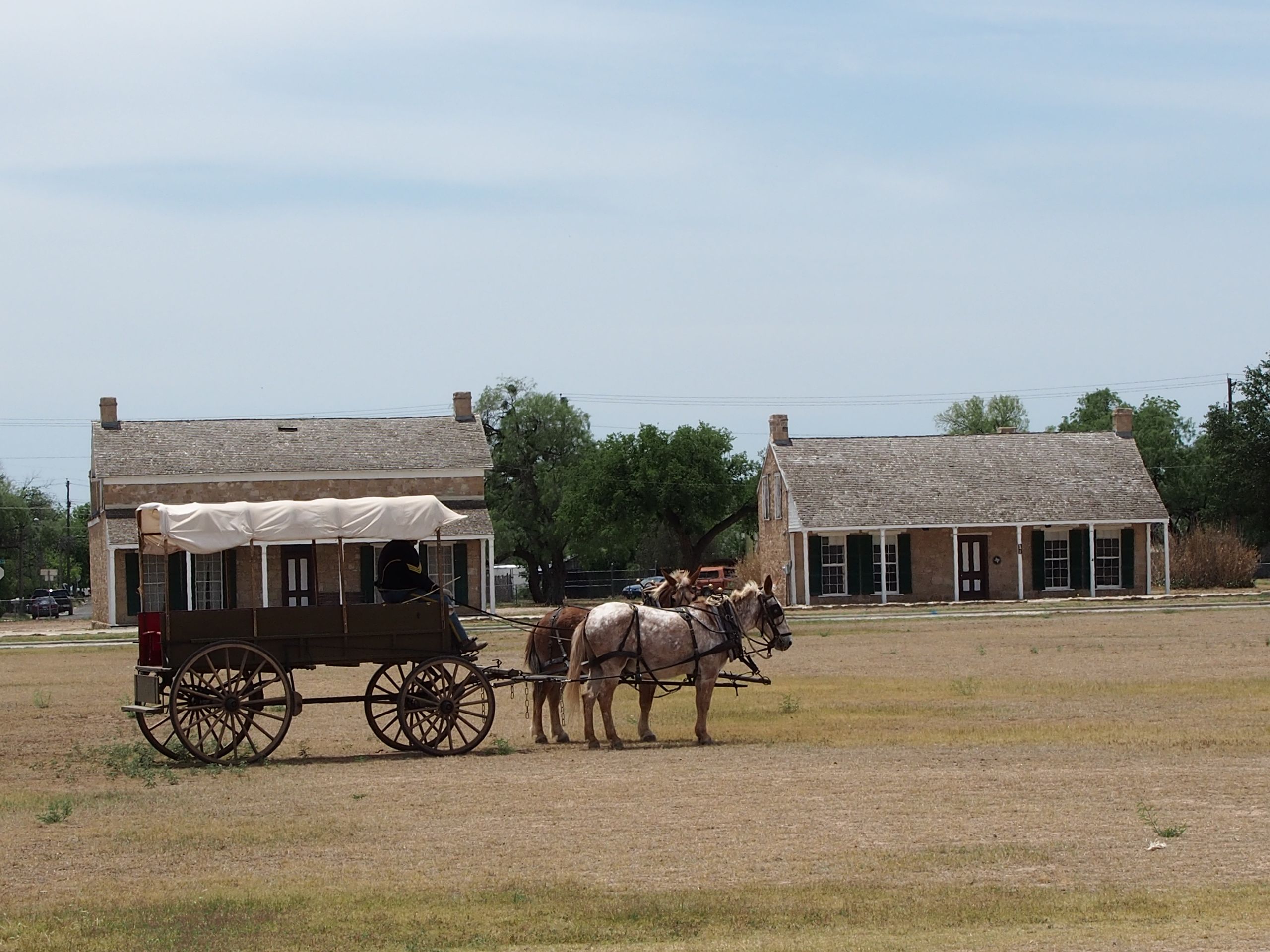
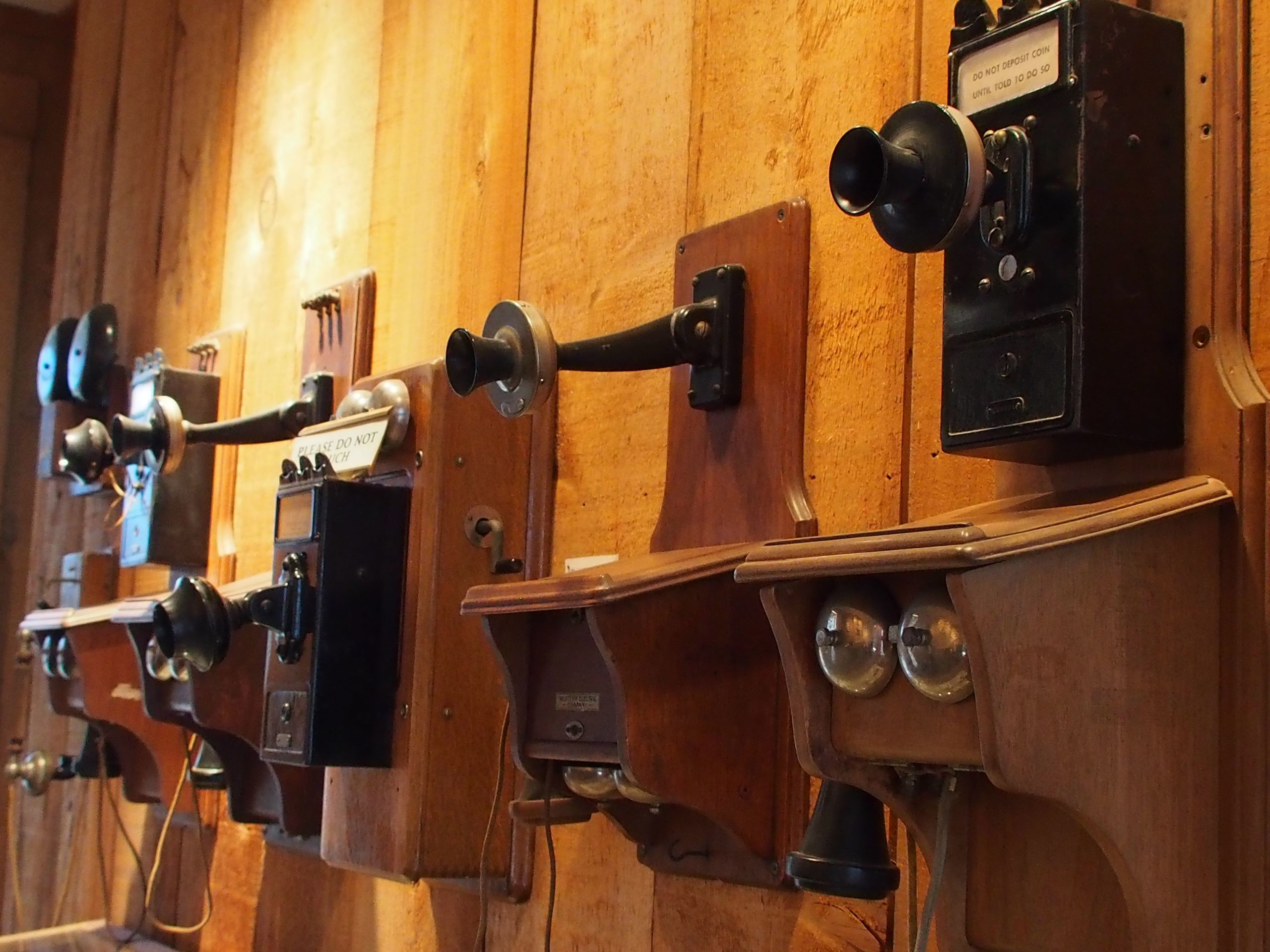
About 4.5 hours of driving are now ahead of us until we reach Plainview. So we drive briefly to Wal-Mart in San Angelo, get some things for a midday picnic, and set off. Straight ahead, endlessly flat.
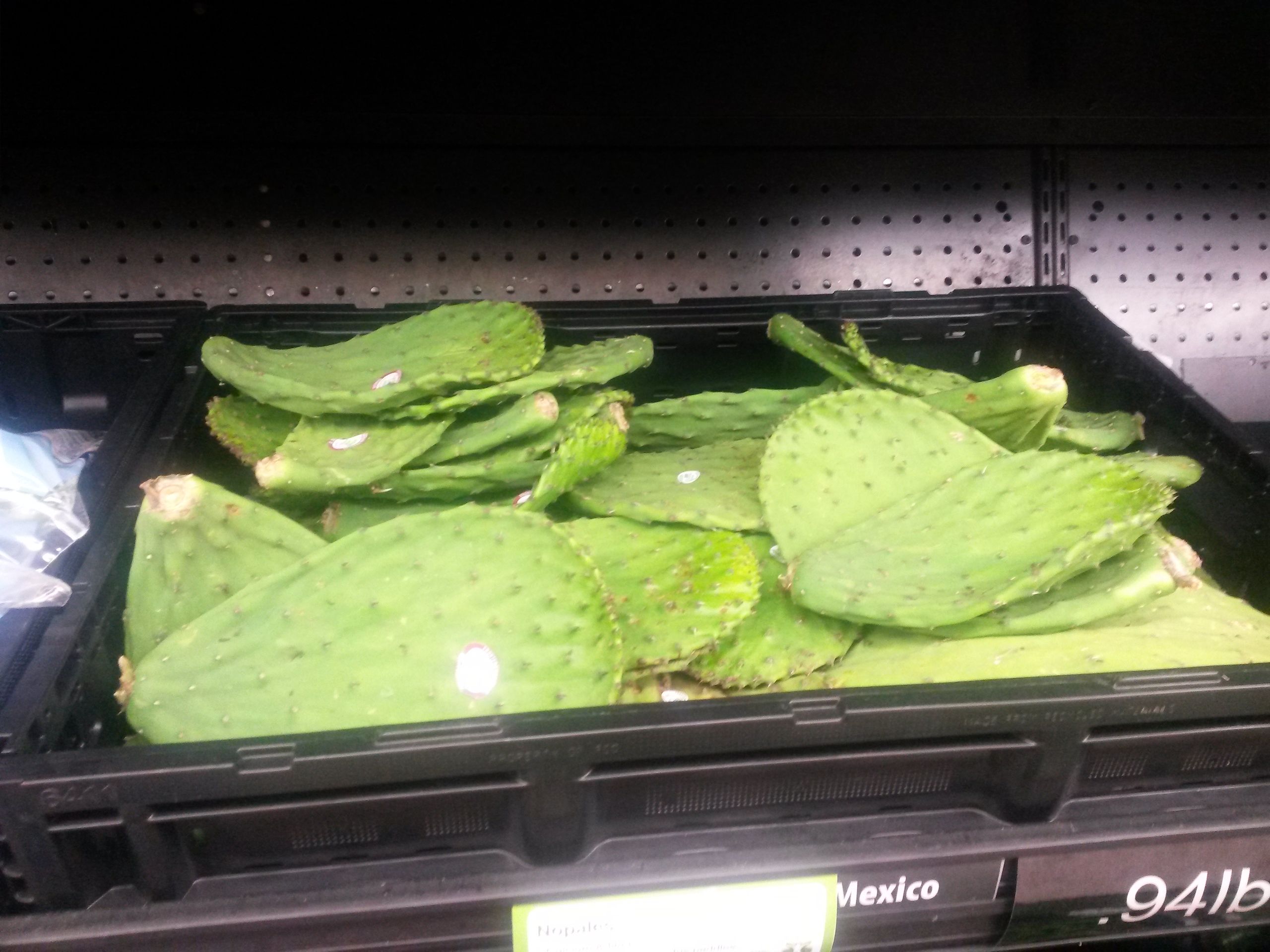
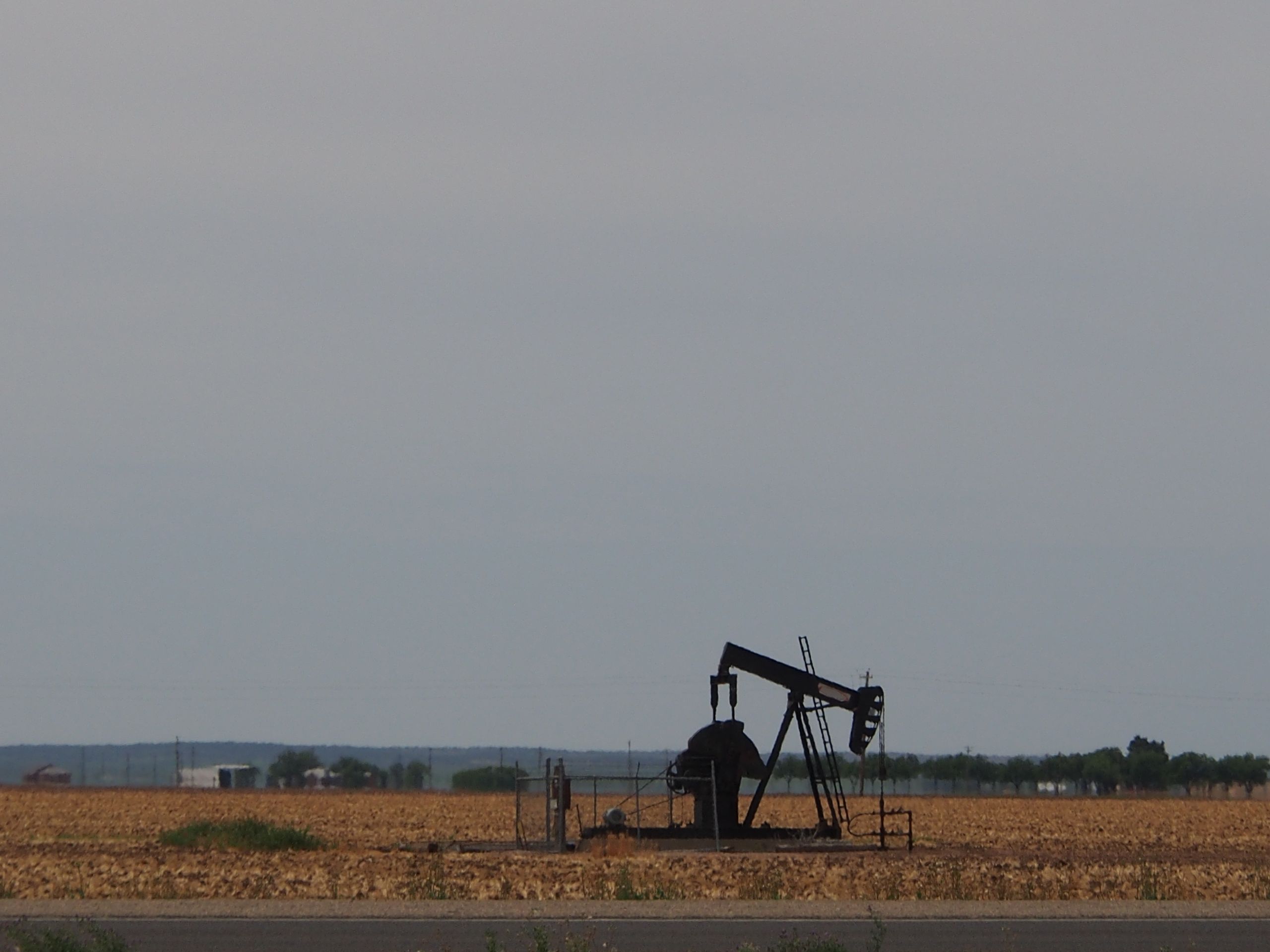
The few cattle we see have gigantic grazing areas. Soon we are surrounded by hundreds of wind turbines. Allegedly the largest wind farm in the world. Oil pumps are increasing now, as well as gas production facilities. In the meantime, gas production has become more important for Texas than oil production.
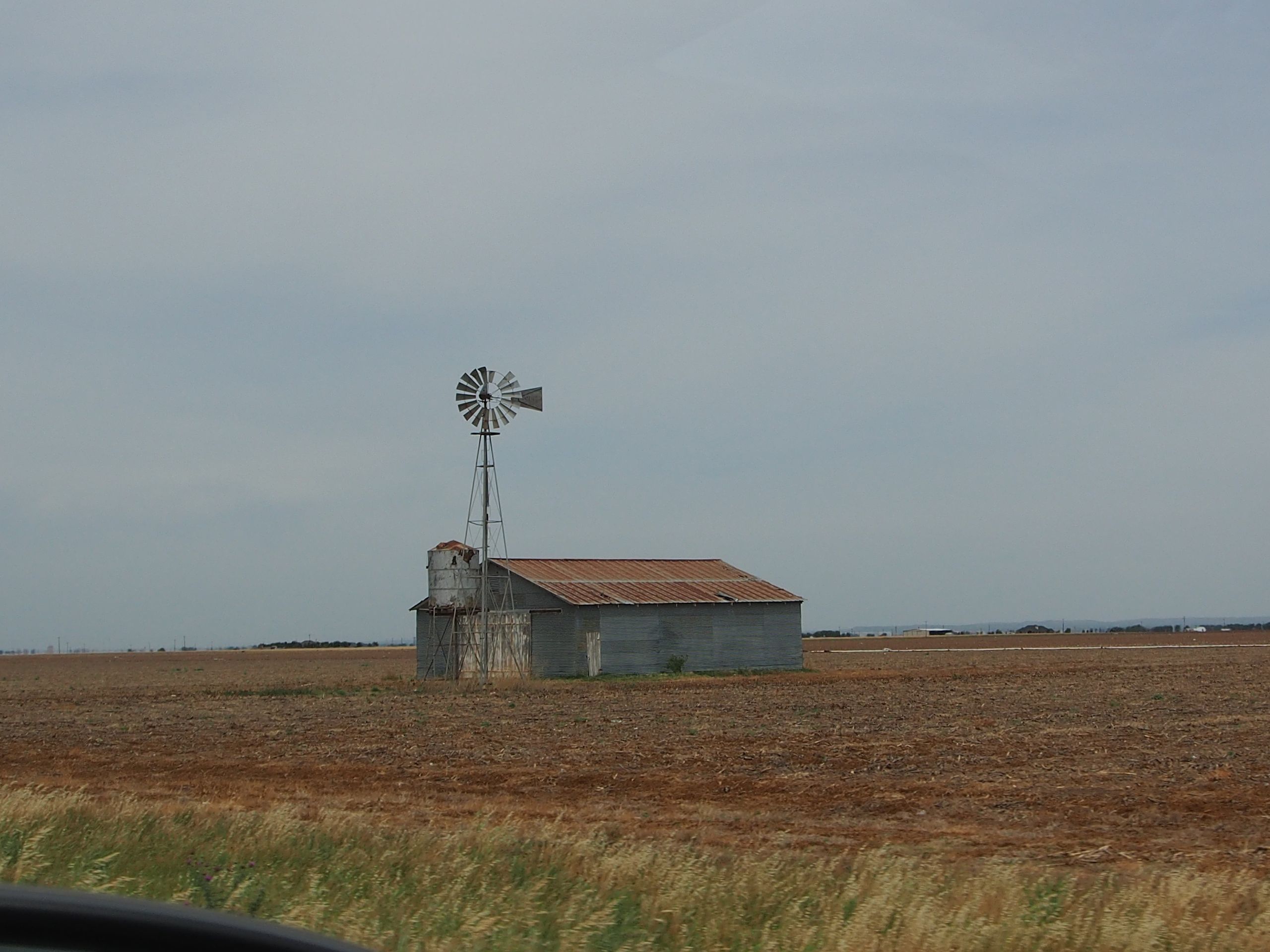
The navigation system shows us lots of "lakes" or at least ponds on the left and right sides of the highway, which we think would be great picnic spots. When we pass these places, these water surfaces are not to be seen, or they are dried up depressions that lie in some fields and are neither accessible nor really suitable for a picnic.
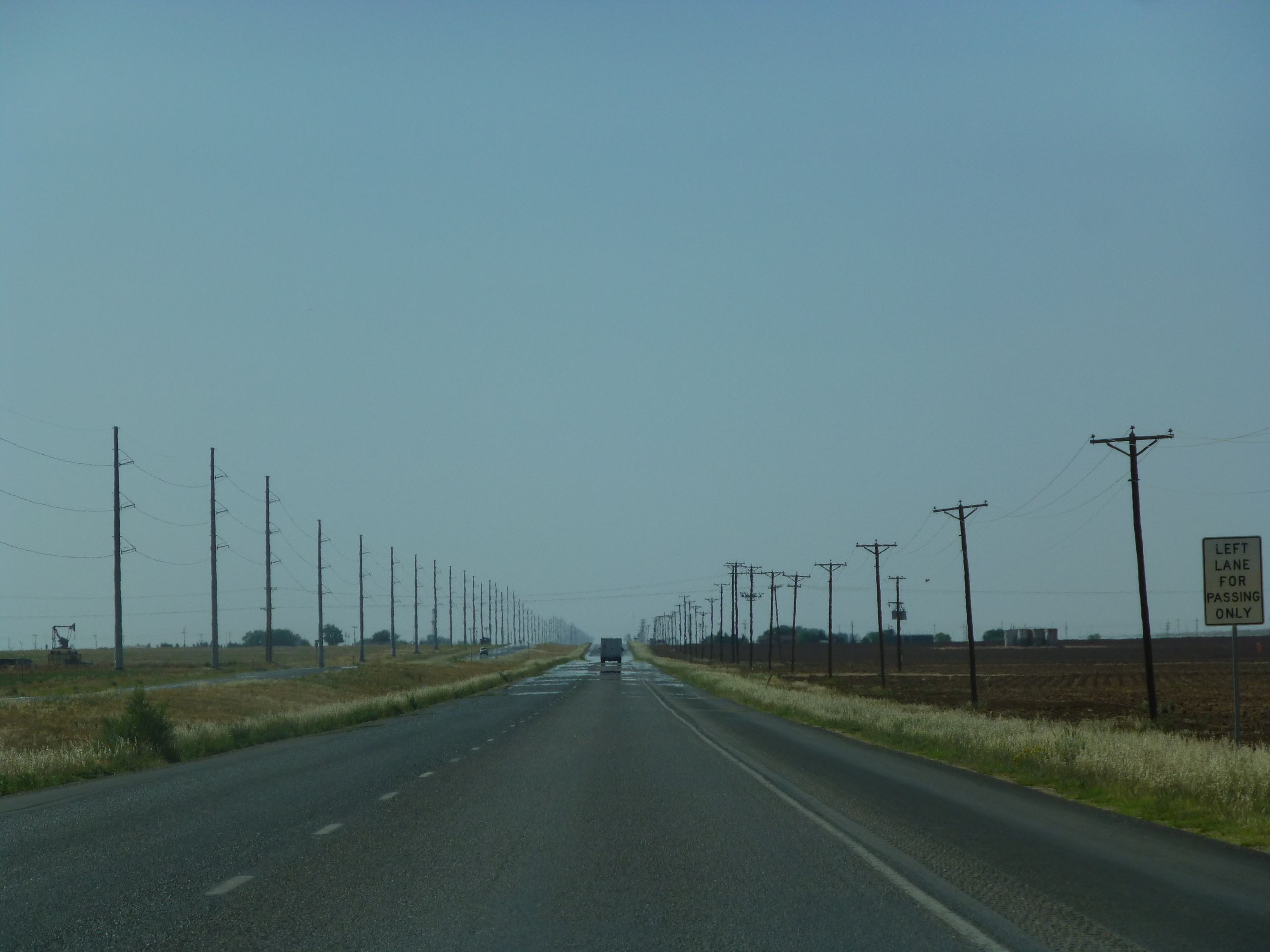
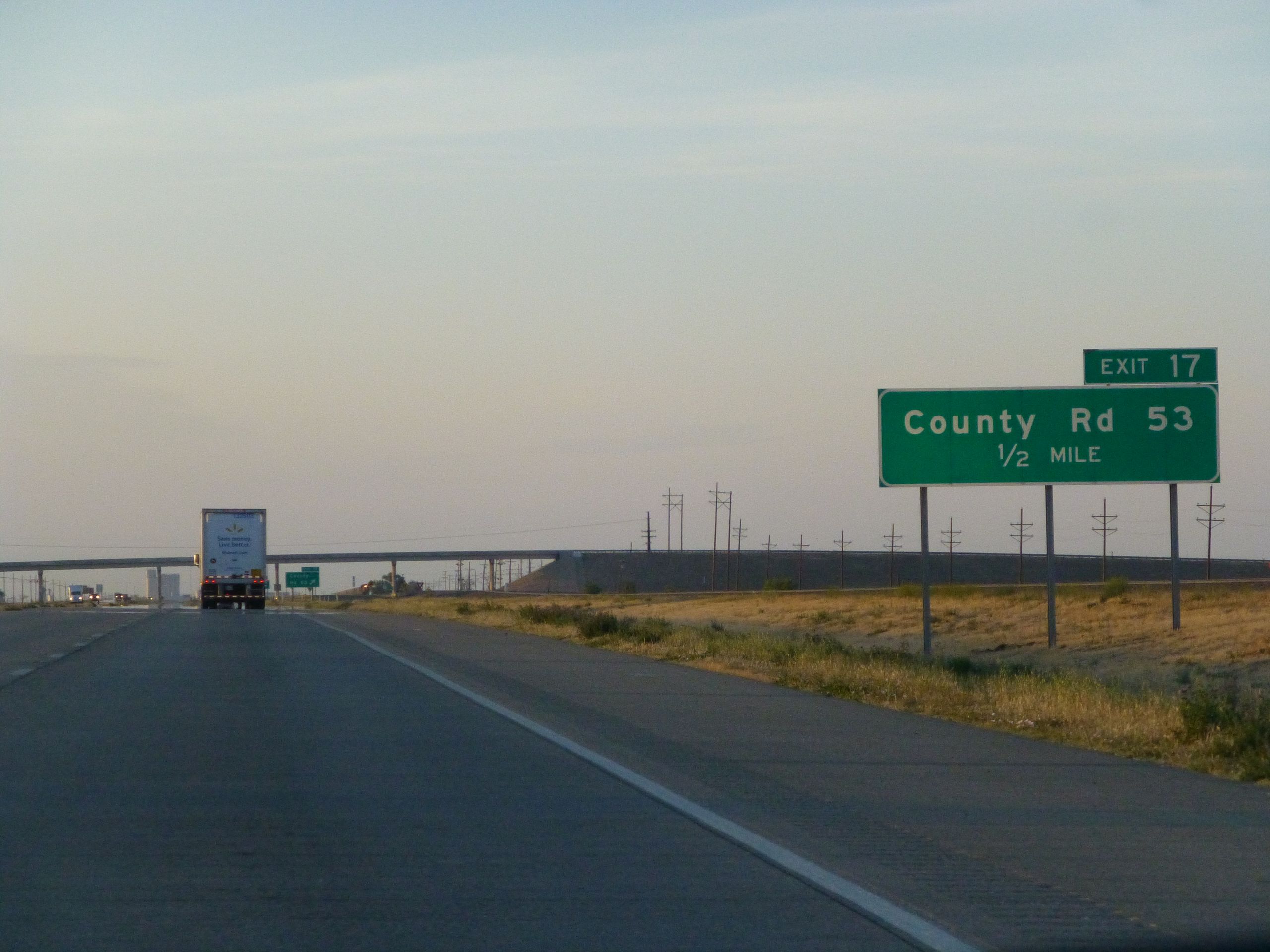
Our picnic finally takes place around 7:00 pm on a grassy area in a residential area of Lubbock. We sit in our folding chairs and eat cheese and radishes.
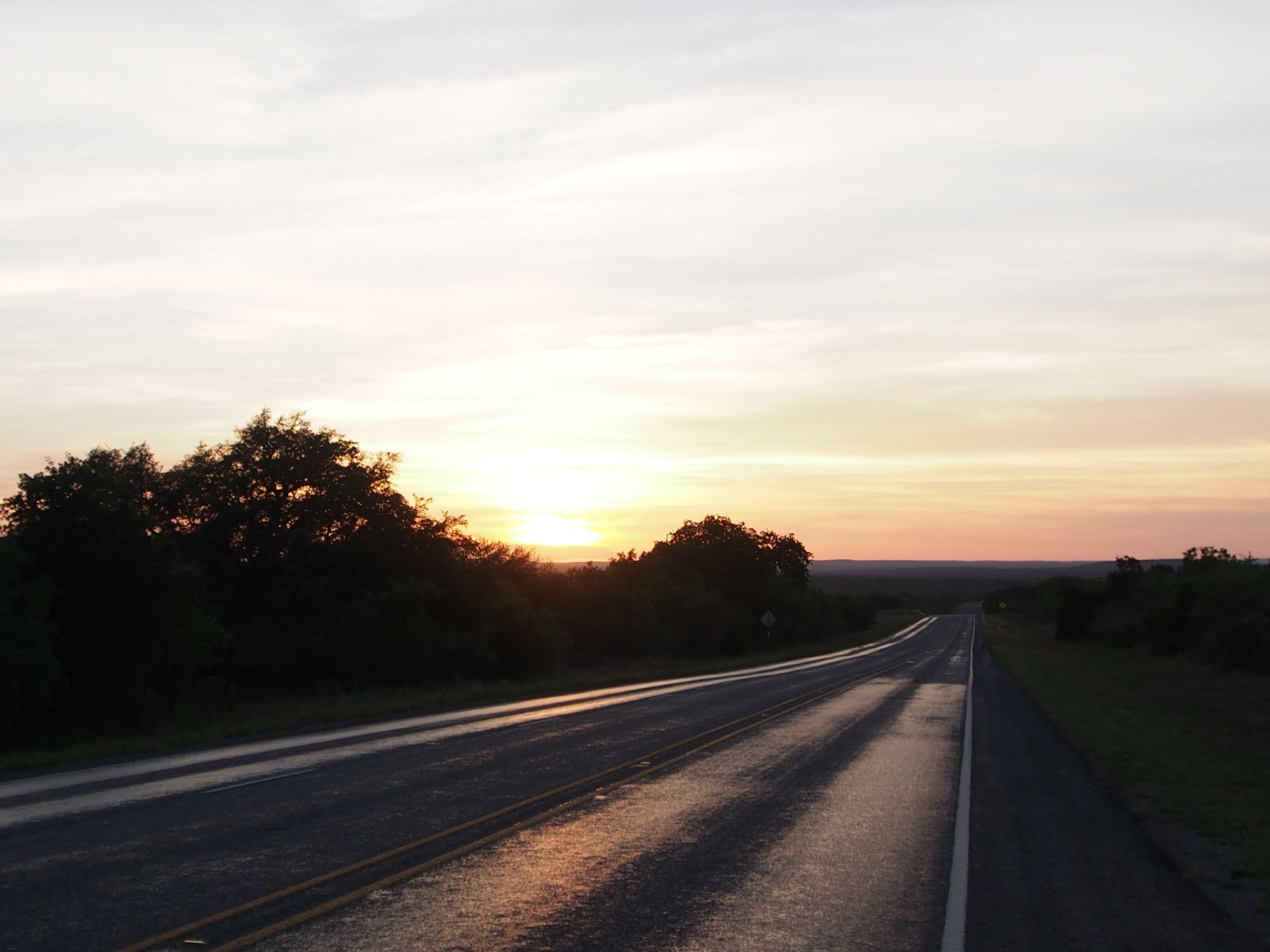
We reach Plainview with darkness falling at 9:00 pm and are pleased that the Super8 Motel has a window that can be opened. The day had temperatures of 35°C and now cools down to a pleasant 14-16°C at night.
Daily distance: 314 miles / 505 km
उत्तरम्
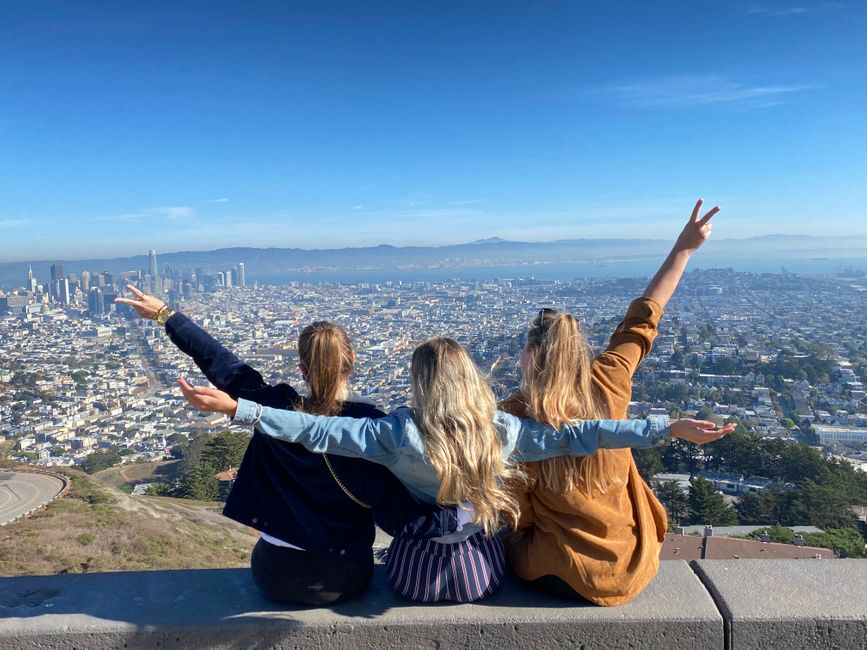
यात्राप्रतिवेदनानि अमेरिका
